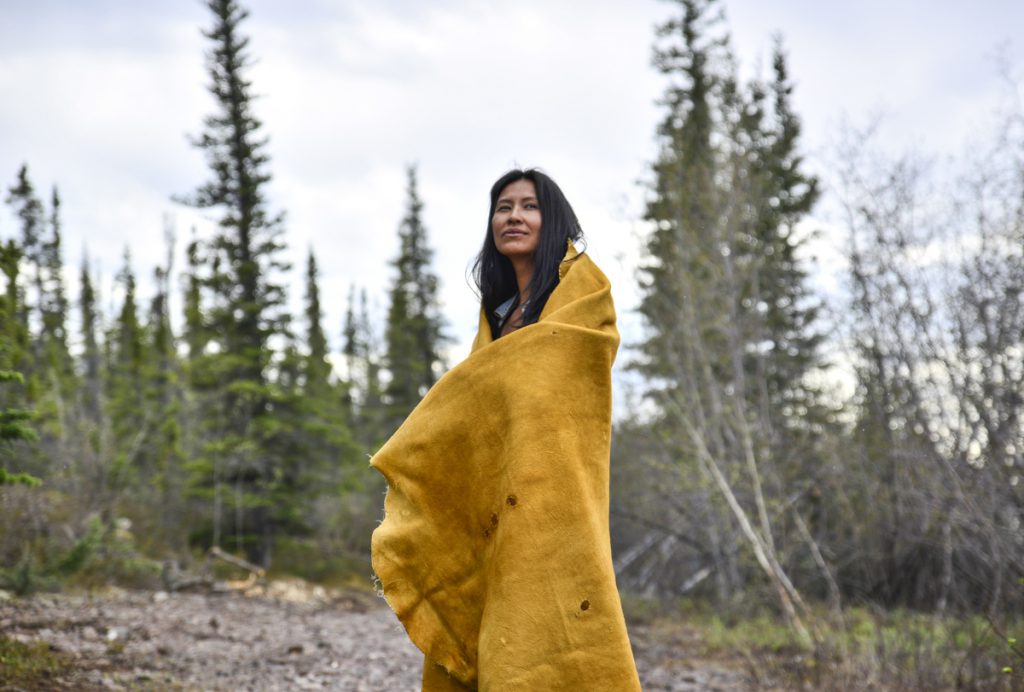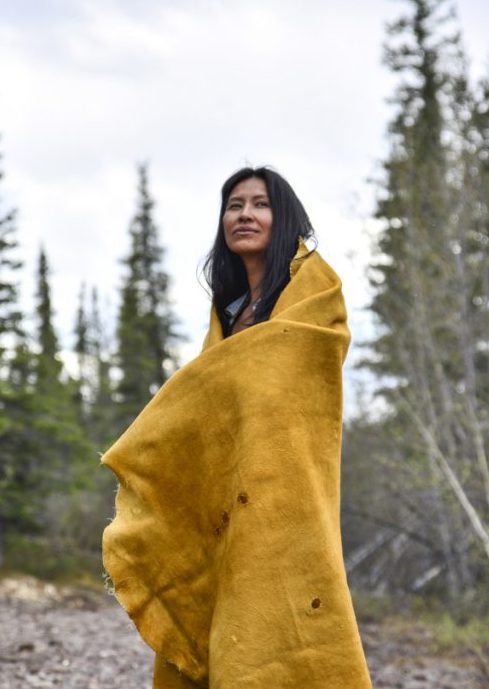Across the globe, we have all been forced to make changes in our lives, to pause and reflect. Many plagues have passed the earth, yet the COVID-19 pandemic is the first experienced by our generation, on such a grand scale. For inhabitants of the Canadian arctic, the health crisis has also created economic, social, and spiritual uncertainty. Just as Indigenous peoples have responded to many great changes in the past, what remains constant during this time is our grounding in our culture, language and land.
For our people, connection to the land, water, and ice is foundational to us. In our history, our migratory patterns, our sources for shelter, food and clothing, our times of renewal and celebration, were all dictated by the environment. Our connection to the land remains so intimate, that we conceive ourselves to be part of the earth.

Today, we are not as dictated by the elements, yet we still find great strength through our relationship with it. Being with the land is both exhilarating and humbling. There is a clear connection between our relationship, or lack of relationship, and the strength, or weakness, in our cultural identities and communities. Having control over language and culture is critical to individual health and well-being and the resilience of our communities.
In this moment, when the world is changing it’s thinking and considering how we can do things differently, we are also given the opportunity to explore our own pathways in the future. We know there is a need for structural changes in our society and we must do this by shifting power and control back to our communities. When communities reclaim their cultural identities, this shift occurs, and people become more empowered and can invest in family, community, and society.
Philanthropic Opportunity: Culture and Language Resurgence Program
The Culture and Language Resurgence (CLR) Program is supporting people, communities, and organizations advancing Indigenous resurgence in the North. This includes amplifying Indigenous leadership capacity, accelerating land based sustainable economies, and catalyzing Indigenous stewardship of homelands.
This program supports and empowers individuals and organizations to:
- Increase the scale and sustainability of existing and emerging community-based programs;
- Promote knowledge and the adoption of best practices;
- Influence policy by communicating and advocating best practices;
- And increase fluency in Indigenous languages and the practice of cultural ways of knowing and being
Become a Partner to Advance the Reclamation of Indigenous Culture
We’ve heard our elders and communities express a need for cultural resurgence work, and we are presented with an opportunity to listen and focus our philanthropic investments in these areas. Since the launch of our Culture and Language Resurgence Program, we have been overwhelmed by demand.
Being the only philanthropic institution of its kind in the North, the program has been oversubscribed. As we gain momentum, we are seeking to increase the fund to at least CDN $1 million per year.
These funds will help strengthen programs in the Canadian North that work towards the revival of Indigenous languages and cultures, increased access to our land, and increased control and power in our communities.
It is imperative that Indigenous languages and cultures persist, and Indigenous and community-led philanthropy are essential to cultural revitalization in the North. Funding partners help advance reconciliation and amplify the sustainable resurgence of Indigenous ways of knowing and being.
Please consider joining us in supporting this essential work with a contribution to the Culture and Language Resurgence Initiative.
This article was written by Lori Tagoona, Senior Associate, Inuit Nunangat, on the MakeWay Northern Program team.
